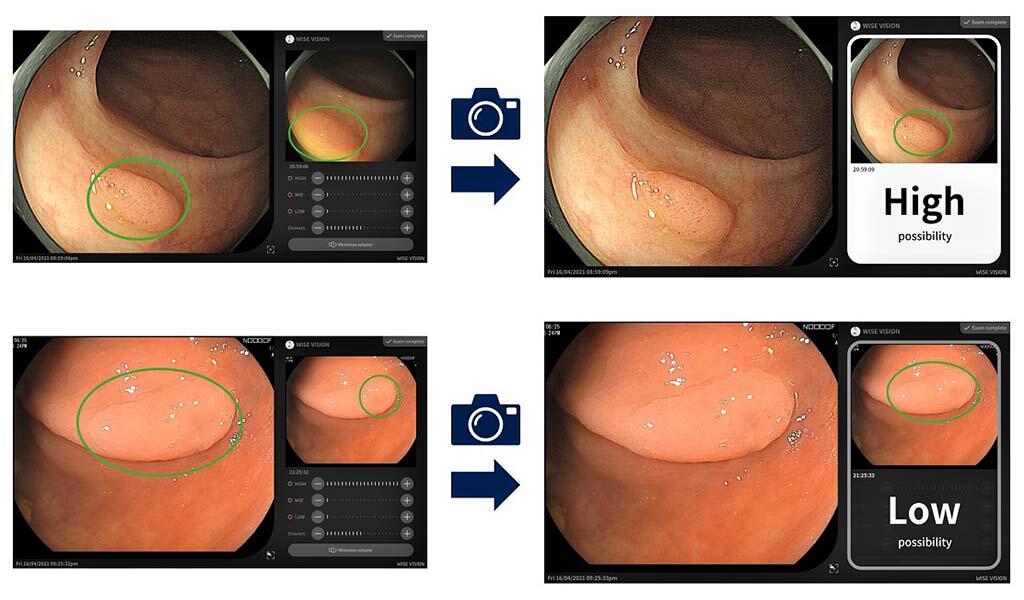On July 14, NEC announced its novel AI-based colonoscopy image analysis technology, which was developed for the early detection of colorectal cancer. Specifically, this determines the likelihood of neoplasia in large intestinal lesions. It has conformed to the CE marking labeling requirements for export to Europe as a function to support lesion characterization. The company has incorporated this new feature, the Cx20, into the AI diagnosis-assistive medical device software, "WISE VISION Endoscopy," and launched its marketing in Europe this year. The software is operated by connecting to existing endoscopic equipment. During endoscopy, the likelihood that the lesion site is neoplastic is determined real-time from a captured image. It is expected to support the identification of lesions by endoscopists and reduce the testing burden on patients through invasive biopsies.
Colorectal cancer is the second most common and most common cancer in Europe and Japan, respectively. Several colorectal cancers have been shown to arise from premalignant lesions (colorectal neoplastic polyps), which can be detected and removed early during endoscopy to reduce cancer progression. However, if it is difficult to distinguish neoplastic from non-neoplastic lesions by visual confirmation of an endoscopist during endoscopy, as a result biopsy and excision of unnecessary non-neoplastic lesions may be performed. Such procedures are burdensome on patients, and this is a particularly significant issue in Europe.
To address this problem, NEC has developed a novel technology to determine the likelihood of neoplasia in large intestinal lesions by training an AI using endoscopic images and the findings of a specialist. In this new technique, an analysis is performed during static imaging with an endoscopic device. If the AI determines that the colorectal lesion is likely to be neoplastic, it is labeled "high possibility;" otherwise, it is labeled "low possibility". Since 2016, NEC has been working with the National Cancer Research Center to generate a technique for the automated detection of suspected colorectal lesions during endoscopy. In January this year, they started marketing a software with this technology.

Credit: NEC
With the addition of the "WISE VISION Endoscopy" function, it will be possible to consistently support lesion discrimination and detection of colorectal lesions in Europe, aiming to aid in reducing the burden on doctors and patients. NEC's face recognition technology, which was highly evaluated by the National Institute of Standards and Technology (NIST) and one of NEC's AI technologies, collectively referred to as "NEC the WISE," was applied in the development of this software. The medical device AI diagnostic support software, equipped with the Cx20 function, will be sold in Europe. It is not sold in Japan as it has not yet been approved for sale as a medical device. In the future, NEC wishes to launch sales in Japan, but the timeline for this is yet undetermined.
This article has been translated by JST with permission from The Science News Ltd.(https://sci-news.co.jp/). Unauthorized reproduction of the article and photographs is prohibited.




